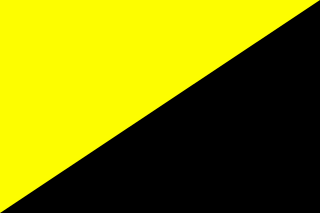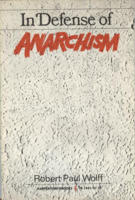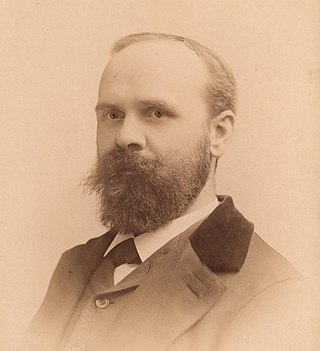Anarchism is a political philosophy and movement that is skeptical of all justifications for authority and seeks to abolish the institutions it claims maintain unnecessary coercion and hierarchy, typically including, though not necessarily limited to, governments, nation states, and capitalism. Anarchism advocates for the replacement of the state with stateless societies or other forms of free associations. As a historically left-wing movement, this reading of anarchism is placed on the farthest left of the political spectrum, it is usually described as the libertarian wing of the socialist movement.

Anarcho-capitalism is an anti-statist, libertarian, and anti-political philosophy and economic theory that seeks to abolish centralized states in favor of stateless societies with systems of private property enforced by private agencies, the non-aggression principle, free markets and the right-libertarian interpretation of self-ownership, which extends the concept to include control of private property as part of the self. In the absence of statute, anarcho-capitalists hold that society tends to contractually self-regulate and civilize through participation in the free market, which they describe as a voluntary society involving the voluntary exchange of services and goods. In a theoretical anarcho-capitalist society, the system of private property would still exist and be enforced by private defense agencies and/or insurance companies selected by customers, which would operate competitively in a market and fulfill the roles of courts and the police.

Individualism is the moral stance, political philosophy, ideology and social outlook that emphasizes the intrinsic worth of the individual. Individualists promote the realisation of one's goals and desires, valuing independence and self-reliance, and advocating that the interests of the individual should gain precedence over the state or a social group, while opposing external interference upon one's own interests by society or institutions such as the government. Individualism is often defined in contrast to totalitarianism, collectivism and more corporate social forms.

The Machinery of Freedom is a nonfiction book by David D. Friedman that advocates an anarcho-capitalist society from a consequentialist perspective.

A night-watchman state, or minarchy, whose proponents are known as minarchists, is a model of a state that is limited and minimal, whose functions depend on libertarian theory. Right-libertarians support it only as an enforcer of the non-aggression principle by providing citizens with the military, the police, and courts, thereby protecting them from aggression, theft, breach of contract, fraud, and enforcing property laws.
The nature of capitalism is criticized by left-wing anarchists, who reject hierarchy and advocate stateless societies based on non-hierarchical voluntary associations. Anarchism is generally defined as the libertarian philosophy which holds the state to be undesirable, unnecessary and harmful as well as opposing authoritarianism, illegitimate authority and hierarchical organization in the conduct of human relations. Capitalism is generally considered by scholars to be an economic system that includes private ownership of the means of production, creation of goods or services for profit or income, the accumulation of capital, competitive markets, voluntary exchange and wage labor which has generally been opposed by anarchists historically. Since capitalism is variously defined by sources and there is no general consensus among scholars on the definition nor on how the term should be used as a historical category, the designation is applied to a variety of historical cases, varying in time, geography, politics and culture.
Criticism of libertarianism includes ethical, economic, environmental and pragmatic concerns. With right-libertarianism, critics have argued that laissez-faire capitalism does not necessarily produce the best or most efficient outcome, and that libertarianism's philosophy of individualism and policies of deregulation fail to prevent the abuse of natural resources. Criticism of left-libertarianism is instead mainly related to anarchism and includes allegations of utopianism, tacit authoritarianism and vandalism towards feats of civilization. Left and right-libertarians also engage in criticism of each other.
Right-libertarianism, also known as libertarian capitalism or right-wing libertarianism, is a libertarian political philosophy that supports capitalist property rights and defends market distribution of natural resources and private property. The term right-libertarianism is used to distinguish this class of views on the nature of property and capital from left-libertarianism, a type of libertarianism that combines self-ownership with an egalitarian approach to natural resources. In contrast to socialist libertarianism, right-libertarianism supports free-market capitalism. Like most forms of libertarianism, it supports civil liberties, especially natural law, negative rights, the non-aggression principle, and a major reversal of the modern welfare state.
Anarchism is generally defined as the political philosophy which holds the state to be undesirable, unnecessary and harmful as well as opposing authority and hierarchical organization in the conduct of human relations. Proponents of anarchism, known as anarchists, advocate stateless societies based on non-hierarchical voluntary associations. While anarchism holds the state to be undesirable, unnecessary and harmful, opposition to the state is not its central or sole definition. Anarchism can entail opposing authority or hierarchy in the conduct of all human relations.

For a New Liberty: The Libertarian Manifesto is a book by American economist and historian Murray Rothbard, in which the author promotes anarcho-capitalism. The work has been credited as an influence on modern libertarian thought and on part of the New Right.
Philosophical anarchism is an anarchist school of thought which focuses on intellectual criticism of authority, especially political power, and the legitimacy of governments. The American anarchist and socialist Benjamin Tucker coined the term philosophical anarchism to distinguish peaceful evolutionary anarchism from revolutionary variants. Although philosophical anarchism does not necessarily imply any action or desire for the elimination of authority, philosophical anarchists do not believe that they have an obligation or duty to obey any authority or conversely that the state or any individual has a right to command. Philosophical anarchism is a component especially of individualist anarchism.
The following outline is provided as an overview of and topical guide to anarchism, generally defined as the political philosophy which holds the state to be undesirable, unnecessary and harmful, or alternatively as opposing authority and hierarchical organization in the conduct of human relations. Proponents of anarchism, known as anarchists, advocate stateless societies or non-hierarchical voluntary associations.

In Defense of Anarchism is a 1970 book by the philosopher Robert Paul Wolff, in which the author defends philosophical anarchism. He argues that individual autonomy and state authority are mutually exclusive and that, as individual autonomy is inalienable, the moral legitimacy of the state collapses.
Anarchy is a society without a government. It may also refer to a society or group of people that entirely rejects a set hierarchy.
Some observers believe that existentialism forms a philosophical ground for anarchism. Anarchist historian Peter Marshall claims "there is a close link between the existentialists' stress on the individual, free choice, and moral responsibility and the main tenets of anarchism".

Benjamin Ricketson Tucker was an American individualist anarchist and libertarian socialist. Tucker was the editor and publisher of the American individualist anarchist periodical Liberty (1881–1908). Tucker was a member of the First International, while describing his form of anarchism as "consistent Manchesterism" and stated that "the Anarchists are simply unterrified Jeffersonian Democrats."

Michael Huemer is a professor of philosophy at the University of Colorado, Boulder. He has defended ethical intuitionism, direct realism, libertarianism, veganism, and philosophical anarchism.

In political philosophy and ethics, political authority describes any of the moral principles legitimizing differences between individuals' rights and duties by virtue of their relationship with the state. Political authority grants members of a government the right to rule over citizens using coercion if necessary, while imposing an obligation for the citizens to obey government orders.
Anarchism and libertarianism, as broad political ideologies with manifold historical and contemporary meanings, have contested definitions. Their adherents have a pluralistic and overlapping tradition that makes precise definition of the political ideology difficult or impossible, compounded by a lack of common features, differing priorities of subgroups, lack of academic acceptance, and contentious historical usage.










